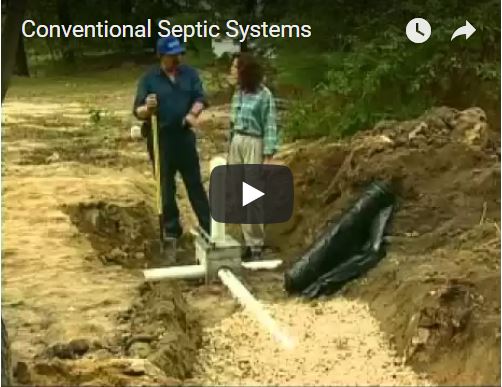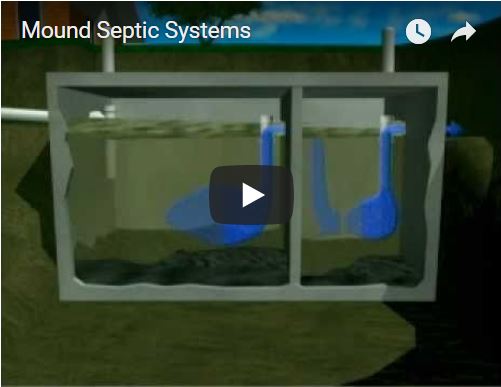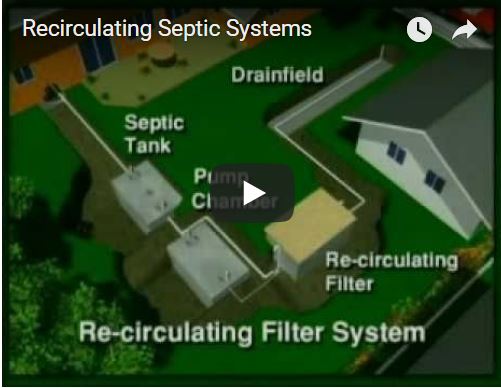What maintenance do I need to perform on my septic system?
Regular inspection and periodic septic tank pump-outs by a licensed liquid waste hauler are essential in the long-term care and maintenance of your septic system. The most common reasons for septic system failure are improper use and lack of periodic pumping of the septic tank. A septic tank is designed so that solids and other material settle and form a sludge layer at the bottom of your tank. A licensed liquid waste hauler will remove this layer to prevent any solids from clogging your disposal system and causing premature system failure. Proper system maintenance is the responsibility of the property owner. By performing a few simple maintenance procedures and having a proper system pump-out, you can save on costly repairs to your septic system.
If you have a nitrogen-reducing BAT (Best Available Technology) unit instead of a conventional septic tank, Maryland law requires that the BAT be inspected by a certified service provider and have necessary operation and maintenance performed at a minimum of once a year. The certified service provider will determine any maintenance required of your BAT unit, including periodic pump-outs. Owners of BAT units should have received a homeowner’s guide covering the proper care and operation of their specific type of BAT unit.
Are there things I should do to ensure my septic system is being properly used?
Don’t use garbage disposals or pour cooking grease, oils or other materials like paper towels, sanitary hygiene products, condoms, cigarettes or plastics into your septic system. These materials can overload your tank and end up clogging your disposal fields. Be careful with the amount of non-biodegradable chemicals used in your septic system like detergents, bleach, fabric softeners and paints. A septic system is a natural living environment, so you want to limit chemical use as much as possible. Practice water conservation by washing full loads of clothes, fixing leaky faucets and running toilets, and installing low-flow plumbing fixtures. Don’t drain swimming pools or hot tubs into a septic system. The more water you pump through your system, the more stress you put on it. Septic tank additives have not been proven to be effective and are not recommended for use in septic systems. When landscaping, make sure plants and trees are compatible with your septic system. Roots can damage pipes and clog the drainfield. Grass is the best type of cover. These simple practices allow your system to operate at its best and can greatly extend the life of your septic system.
What must be done before a septic tank can be pumped?
Septic tanks are constructed as single or double compartment tanks made of concrete, metal or plastic. Each compartment has a lid at the top to provide access for periodic pump-outs. Each lid typically is covered by 6 inches to 3 feet of soil material. The soil material covering each access lid must be removed by the owner before a septic tank pump-out can occur. To prevent injury, the access lid(s) should only be removed by a licensed liquid waste hauler. A septic tank is a confined space and contains gases that can be deadly. Never climb into or enter a septic tank.
BAT owners should refer to their homeowner’s guide and consult with their certified service provider to discuss the frequency for pump-outs in maintaining the BAT unit.
How often should I pump out my septic tank?
By performing periodic septic tank pump-outs, you can save on costly repairs to your septic system. The frequency of septic tank pump-outs will depend on the current use of the system and the number of people living in the household. Septic tank pump-outs for residential use are recommended at least once every three years. For more information on the frequency of pump-outs, consult with a licensed liquid waste hauler or disposal system contractor.
How can I assure my hauler conducts a proper system pump-out?
The best way to assure a proper system pump-out is to be there and watch how your septic tank is being pumped. A proper system pump-out includes removing the contents from each compartment of your septic tank, and should only occur through the access lid of your septic tank.
How can I determine if my septic system has failed?
Look around the area of your septic system to see whether a system overflow or failure has occurred. If you notice signs of ponding water or areas that seem wet all the time, consult with a licensed disposal system contractor and get the appropriate County permits to properly repair or replace your septic system.
For guidelines on locating your septic system, see Guidelines on Locating Your Septic System.
Where can I get more information?
View videos below on the proper operation and maintenance of your septic system.
For a list of Anne Arundel County licensed liquid waste haulers or disposal system contractors, call the Sanitary Engineering Program at 410-222-7189.
If you have additional questions, contact:
Sanitary Engineering Program
Anne Arundel County Department of Health
3 Harry S. Truman Parkway
Annapolis, Maryland 21401
410-222-7193



